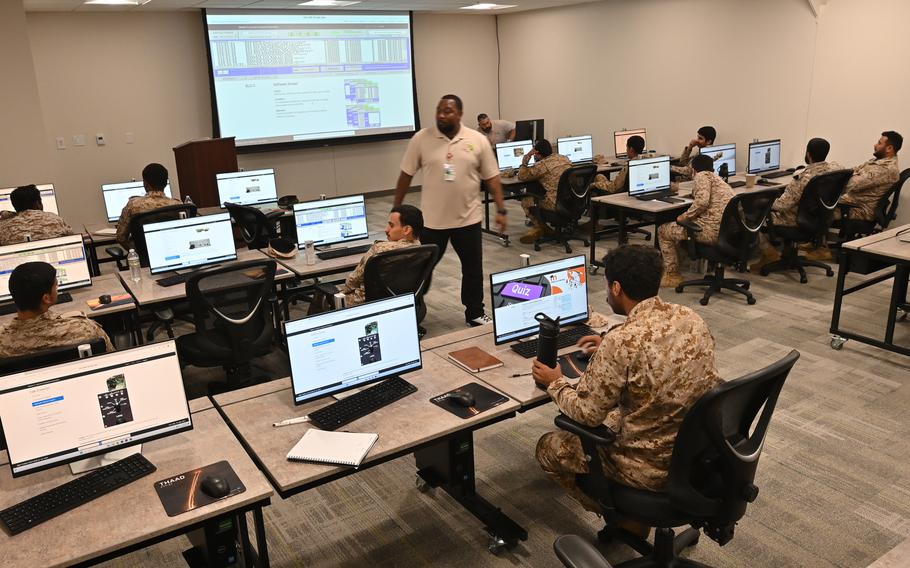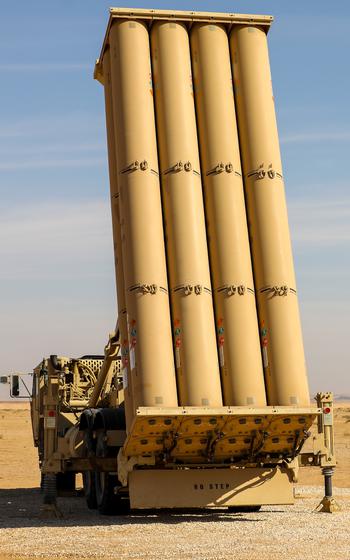
Saudi military personnel attend class on the Terminal High Altitude Area Defense missile system at Fort Bliss, Texas, in August 2024. The third class of THAAD operators from Saudi Arabia recently graduated from their instruction at the U.S. base. (Patrick Adelmann/U.S. Army)
Saudi Arabia is expanding its missile defense capabilities with new training on a U.S.-made system, even as Washington works to replenish its own depleted stockpiles.
The Royal Saudi Air Defense Forces this week graduated its third class capable of operating the Terminal High Altitude Area Defense systems, which have become a key component of U.S. defense operations in the Middle East, according to the Saudi Press Agency.
During the June war with Iran, the U.S. used THAADs to shoot down missiles heading for Israel, expending nearly a quarter of the military’s entire high-altitude interceptor arsenal, The Wall Street Journal reported.
While the U.S. is working to ramp up interceptor production in response, experts have said the gap in the arsenal means the military may have to choose between shoring up its own supply and fulfilling foreign deliveries, including a $15 billion order from Saudi Arabia.

A Terminal High Altitude Area Defense system is prepared to launch interceptors at an undisclosed location in the U.S. Central Command area of operations in 2023. Saudi Arabia recently graduated its third class of THAAD operators after training at Fort Bliss, Texas, according to the Saudi Press Agency. (Duy Nguyen/U.S. Army)
The Saudis officially launched their first THAAD battery with a ceremony in Jeddah in July. They’re scheduled to receive seven batteries and 360 interceptors, though the timeline for delivery is unclear.
Saudi service members graduated from the THAAD program after completing specialized training at Fort Bliss in Texas, the Saudi Press Agency said.
They learned to operate the system through hands-on instruction, combat simulations and guidance from contractors working alongside the U.S. military.
The THAAD system has the ability to intercept short, medium and intermediate-range ballistic missiles, and is the only one designed to take down targets both outside and inside the atmosphere, according to manufacturer Lockheed Martin.
The U.S. has eight THAAD batteries, about half of which are deployed overseas, including Guam, South Korea and Israel, according to a July report from the Congressional Research Service.
Saudi Arabia is a key U.S. ally in the Middle East and hosts hundreds of service members at Prince Sultan Air Base, about 90 miles outside the capital of Riyadh.